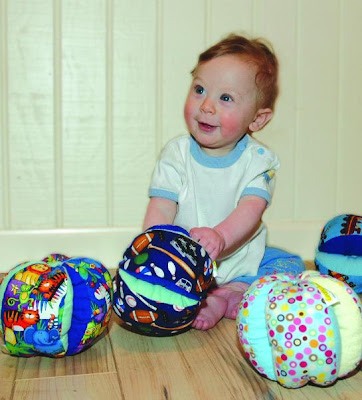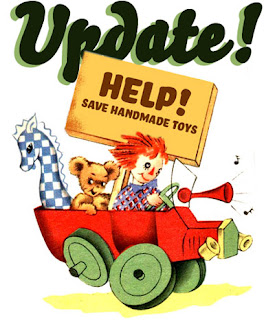 The Handmade Toy Alliance, (HTA) representsa broad swath of small and micro businesses involved in production, retailing and importing of specialty toys and children’s products. These businesses are the backbone of specialty children’s products culture in America. They are mothers crafting items for sale on etsy.com, they aresmall specialty toy shops in towns across America, they are small businesses producing small batch toys in the USA, and they are all entrepreneurs providing new and unique opportunities for safe play.
The Handmade Toy Alliance, (HTA) representsa broad swath of small and micro businesses involved in production, retailing and importing of specialty toys and children’s products. These businesses are the backbone of specialty children’s products culture in America. They are mothers crafting items for sale on etsy.com, they aresmall specialty toy shops in towns across America, they are small businesses producing small batch toys in the USA, and they are all entrepreneurs providing new and unique opportunities for safe play.This diverse membership struggles with assembling, reading, interpreting, understanding and implementingthe Consumer Product Safety Improvement Act (CPSIA.) The smallest microbusinesses have the largest hurdle to jump, but even our small business members have a sizeable learning curve. I’ll summarize these issues along with suggested outreach opportunities for threebusiness categories within the HTA.
Micro-businesses are those crafting and retailing toys and children’s products in very small batches, each in very narrow product types. These businesses are family or single owner businesses with no employees and they represent 61% of our membership.In addition to selling their products online in a marketplace like etsy.com, they retail their products at small craft shows throughout the country. These may be church fairs, county fairs and other artisan events where they sell directly to the public.
2. Inability to interpret the laws and rulings for their specific products and circumstances.
3. No feasible access to legal representation to provide an interpretation the law.
4. Difficult to obtain documents required by the law – ASTM F963 – because of cost and limited availability.
The HTA suggests flowcharts or other easy to use methods like web-based question-answer forms for providing requirements in a logical manner. The intelligence programmed into the flowchart or form sequence leads business owners through questions ultimately arriving at requirements for their product. Either technique mustprovide the user the following information:
1. What parts of the law are applicable,
- what is the specific component that causes the test requirement,
- a list of certified testing laboratories.
4. How to apply the small batch rules from H.R.2715,
5. What are the labeling requirements,
6. What are the record keeping requirements,
7. What liabilities and penalties come into play,
8. And, what form a certificate must take.
Another tool the CPSC can provide is to publish lists of components to avoid when making one of a kind and crafted children’s items. For instance; metal beads, colors that have a greater risk of containing lead, hazardous fasteners, etc. This is an easy way to keep components that are more likely to pose a risk of injury or that likely cause test failure out of children’s products from the start.
The second category is small specialty toy retailers, both brick and mortar and internet based. These businesses provide a market for small batch children’s products and an alternative for consumers not interested in products mass produced in the Far East. They differentiate themselves from mass market retailers by offering unique small batch products, usually through a single retail outlet. These businesses represent 25% of our membership.
1. What parts of the law they should be aware of when working with small batch suppliers,
3. What responsibilities they have when acquiring product directly from a local small batch manufacturer,
4. What responsibilities they have when acquiring product directly from a foreign manufacturer,
5. And how they can ensure their inventory is safe and compliant.
The final category is specialty toy importers and these businesses represent 5% of our membership. It is a small percentage, but a big component in the culture of specialty toys in America as these importers provide access to mainly small batch products from Europe.
For importers the CPSIA blurs the definition of manufacturer to include the importer. The law is not always clear in how this blurring occurs. They need to know:
1. How to determine if they are considered the manufacturer of record, especially when they hold no inventory or only facilitate transport from foreign manufacturer to domestic retailer,
3. What record keeping requirements affect them,
4. And how to apply the small batch rules from H.R.2715.
The primary source of information for specialty toy importers is the internet and a secondary source is an industry group like the Handmade Toy Alliance.
In General
About the Handmade Toy Alliance
 It has come to our attention that
It has come to our attention that 















